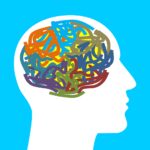Randi B. Miller
Randi Miller MA, CAS; MS.EDL
Ms. Miller is a NYS certified school psychologist with 24 years professional working experience at various Nassau BOCES special education programs. At present, she works in a school-age program that educates students with moderate to severe developmental disabilities including Autism. Additionally, she has completed the course work necessary to qualify for Certification as a School building leader and earned a MS degree from Nova University- Shepard Broad Law School with a concentration/specialty in Education Law.
In her role as a School Psychologist, she prepares and facilitates staff development trainings, workshops, and parent trainings both in person and now virtually. Ms. Miller has been developing and instruction professional development in-service classes for almost 10 years.
Ms. Miller offers courses for all educators in and out of the classroom in the areas of child and adolescent disorders, mental health, social emotional learning, positive behavior supports, classroom management and behavior intervention. Ms. Miller continues to develop and add new and relevant courses every year.
Check out my course offerings:
Courses |
|---|
 All about: Social Emotional Learning (SEL) School-wide Engagement Activities All about: Social Emotional Learning (SEL) School-wide Engagement ActivitiesInstructor: Randi Miller
Course Description:
School-wide and Classroom Practices is an integral component of Social-Emotional Learning (SEL) programs. A part of SEL is the process of helping educators build their expertise and skills to lead their schools social and emotional learning initiatives regardless of their role in the building/district. One of the many components of SEL is cultivating adults’ own social and emotional competencies.
When educators embody the same practices that they hope to teach their students, the outcomes for learners are maximized. Developing school-wide engagement activities for SEL provides opportunities for staff and students to engage in team building and learning activities that focus on this common goal. The development and implementation of school-wide activities creates teachable moments while reinforcing the core SEL components.
This course is relevant to all who work in schools with children ages 5-21 in both regular and special education settings. This course has been designed for all school administrators, regular and special education teachers (grades K-12 and ages 5 to 21),special area teachers (gym, art, music, technology) school psychologists, school counselors, guidance counselors, social workers, speech and language therapists or speech pathologists and occupational or physical therapists $250.00$280.00 Buy here |
 All about: Selective Mutism (SM) All about: Selective Mutism (SM)(3 credits/45 hours)
Instructor: Randi Miller rmillerliips@gmail.com
Selective Mutism is an anxiety disorder which significantly affects social/pragmatic language skills, social interactions, relationships as well as school performance. This course will focus on the development of SM and co-existing conditions (such as social anxiety). It will provide a review of evidence based practices for those working with students in a school setting students with SM (or those who may display) characteristics of Selective Mutism.
Course objectives;
After completing the coursework, participants will:
Have knowledge of the diagnostic criteria and characteristics of SM and related disorders
Have a foundation of information to support a student with SM in and out of the classroom.
Be able to work with peers to support their classmate with SM
Create/share resources for parents and colleagues
This course is relevant to all who work in schools with children ages 5-21 in both regular and special education settings. This course has been designed for all school administrators, regular and special education teachers (grades K-12 and ages 5 to 21), special area teachers (gym, art, music, technology) school psychologists, school counselors, guidance counselors, social workers, speech and language therapists or speech pathologists and occupational or physical therapists. $250.00$280.00 Buy here |
 ALL ABOUT: AI in Education and School Support Services ALL ABOUT: AI in Education and School Support ServicesClasses to start Summer 7/1/25 Instructor: Randi Miller Course Description This 3 credit inservice course explores the transformative role of artificial intelligence (AI) in education and school support services. Teachers, school administrators, and support professionals will examine how AI can enhance teaching, learning, student services, and administrative efficiency. The course will provide a balanced perspective on the benefits, challenges, and ethical considerations of AI in schools. Participants will engage with AI-powered tools, analyze case studies, and develop implementation strategies tailored to their roles. Through structured assignments, participants will explore AI’s impact on instructional strategies, personalized learning, student assessment, mental health support, special education services, and school operations. This course will equip education professionals with the knowledge and skills to harness AI effectively while maintaining ethical and inclusive practices. This course was developed for general, special education and special area teachers, School administrators, PPS staff (school counselors, psychologists, social workers) and related service providers (speech therapists, OTs and PTs). $250.00$280.00 Buy here |
 All about Today’s Classrooms, Tomorrow’s Challenges All about Today’s Classrooms, Tomorrow’s ChallengesClasses to start Summer 7/1/25 Instructor: Randi Miller Course Description This 3 credit inservice course explores the most pressing issues affecting K-12 education today. Through readings, discussions, and practical assignments, educators will gain insights into current trends and controversies, develop strategies to address these challenges, and create actionable plans to improve their schools and classrooms. This course was developed for general, special education and special area teachers, School administrators, PPS staff (school counselors, psychologists, social workers) and related service providers (speech therapists, OTs and PTs). $250.00$280.00 Buy here |
 All About Trauma Informed Behavior and Classroom Management All About Trauma Informed Behavior and Classroom ManagementPDLI9010
(45 HOURS/3 GRADUATE CREDITS)
ON-LINE
Instructor: Randi Miller rmillerliips@gmail.com
Course Description: Traumatic experiences come in many forms ranging from one-time events (like the current pandemic) to experiences that are prolonged and recurring. To date, approximately 50% of the nation’s children and adolescents have experienced at least one or more types of serious childhood trauma. The effects of these traumatic experiences impact how students focus, attend, learn, form relationships and behave in the classroom. Trauma informed interventions focus on building relationships, routines, choice-making and self-regulation skills. This course has been developed to provide all educators with content knowledge on the types and biology of trauma, ACES, and best practices in trauma-informed behavior and classroom management strategies. The course will provide participants with the knowledge and tools they need to create a safe, supportive learning environment for all students. A timely course given the current public health crisis and school shut down. A good opportunity to be prepared to meet the needs of staff and students when school re-opens. Applicable all Educators and Staff K – 12. $600.00 Buy here |
 All About School Refusal: Helping our Students Attend and Stay in School All About School Refusal: Helping our Students Attend and Stay in SchoolPDLI9000
(45 HOURS/3 GRADUATE CREDITS)
ON-LINE
Instructor: Randi Miller rmillerliips@gmail.com Graduate Level Credits
Course Description:
Each year, approximately 2–5% of children refuse to come to school. School refusal can be observed in kindergarten students who demonstrate relatively mild separation anxiety to more severe cases where a student misses’ weeks or months of school. As a result of the social and educational consequences associated with missing school, the issue needs to examine and addressed promptly. This course will look at the factors associated with and contributing to the occurrence of school refusal. Participants will examine the short- and long-term effects of absenteeism, the signs and symptoms commonly associated with school refusal and research solutions to the problem.
This course is relevant to all who work in schools and with children ages 5-21 in both regular and special education settings. This course has been designed for school administrators, regular and special education teachers (grades K-12 and ages 5 to 21),special area teachers (gym, art, music) school psychologists, school counselors, guidance counselors, social workers, speech and language therapists and pathologists and occupational and physical therapists. $600.00 Buy here |
 All Behavior is Functional: functions of behavior and how to increase participation and manage misbehavior All Behavior is Functional: functions of behavior and how to increase participation and manage misbehaviorPDLI9020
(45 HOURS/3 GRADUATE CREDITS)
ON-LINE
Instructor: Randi Miller rmillerliips@gmail.com
Course Description:
Approximately 10 percent of the school population (or 9-13 million children) struggle with and demonstrate behaviors associated with mental health problems, ASD, developmental and learning disabilities. Additionally, on the rise, are students who struggle day to day from the effects of trauma or bullying. In the classroom, children with behavioral challenges and acting out behavior, are disruptive in the classroom, fall behind academically or never master the skills they need to make adequate progress.
This course has been developed to provide educators in and out of the classroom with content knowledge on principles of behavior, the functions of behavior and will provide the participants with a set of skills they can use to identify what a student is getting from his/her behavior and how to best manage and prevent ongoing incidents in/out of the classroom. Applicable all Educators and staff K-12. $600.00 Buy here |
 All About School Mental Health Issues All About School Mental Health IssuesPDLI9030
(45 HOURS/3 GRADUATE CREDITS)
ON-LINE
Instructor: Randi Miller rmillerliips@gmail.com
Course Description:
The mental health of students in schools is an often overlooked, yet extremely relevant issue for today’s educator. Educators are often the first to notice mental health problems and are in a unique position to make a difference when it comes to promoting and addressing student mental health concerns in and out of the classroom. Mental disorders: affect a student’s emotional well-being, affect a student’s ability to learn and may be a factor in why some students refuse to attend school. This course will cover: common mental health disorders (10 in total), the signs and symptoms of each disorder, the behavioral manifestation of the disorders in school, and the role of educators (regardless of their position) to identify warning signs, communicate with parents and support students in/out of the classroom.
This course is relevant to all who work in schools with children ages 5-21 in both regular and special education settings. This course has been designed for all school administrators, regular and special education teachers (grades K-12 and ages 5 to 21), special area teachers (gym, art, music, technology) school psychologists, school counselors, guidance counselors, social workers, speech and language therapists or speech pathologists and occupational or physical therapists. $600.00 Buy here |
